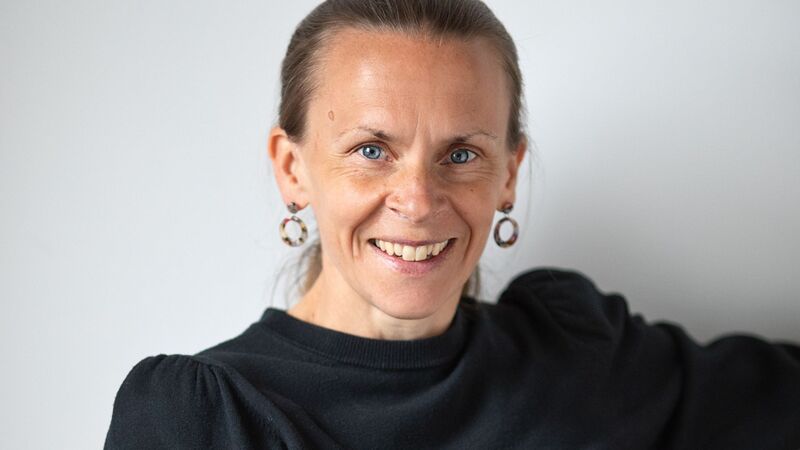You are viewing your 1 free article this month. Login to read more articles.
Women react to publishing's gender pay gap revelations
Women working in publishing have reacted with anger to the broad gender pay gap statistics revealed last week by major houses.
Hachette UK Ltd disclosed a median pay gap of nearly 24%, for Pearson and Springer Nature it was 15% and for HarperCollins 10.4%. Only Penguin Random House UK had an overall gender pay gap in women's favour - a median gap of 1.6%, although when taking into account its distribution arms, the Hachette Group also has a median gender pay gap in women's favour at 1.32%. A breakdown of the company disclosures showed that, broadly speaking, although women make up 69% of the publishing workforce, they are heavily underrepresented in senior positions and the top pay quartiles.
Many women felt unable to speak on the record about the subject for fear of professional repercussions.
A senior woman at Hachette, who preferred to speak anonymously, told The Bookseller: "The data confirms my long-held suspicions about pay and bonuses in publishing, and reflects the institutional sexism in much of the industry. We need to see immediate action addressing these disgraceful numbers. And I speak from a very privileged position. I can only imagine how those less privileged must feel. I trust this is the beginning of real change."
She added: "I hope that a diverse team will be put in place to implement the necessary changes. The current leadership has failed in this area."
A mid-career publisher with experience in several publishing houses, who also preferred to speak anonymously, commented: “Does it sound odd to say that the figures came as a shock but not a surprise? In my career I’ve been fortunate to work with brilliant women in senior management roles, but what these figures show is that even in companies that seem to have an enlightened attitude to promoting women, men are getting paid far more.
"Two factors that stand out for me: firstly, that junior and middle level salaries have stagnated over the last 20 years; and that women dominate the publishing workforce except at board level, which is where the second factor comes into play – the huge pay gap between those at the bottom and those at the top, where a board level executive might receive remuneration of hundreds of thousands of pounds, many times the basic salary of an entry level role, with bonuses on top of that.
"To my mind the most important change that could be made would be to address this pay differential by increasing salaries all the way up to board level, so that when we’re asked to celebrate our company’s success, we can do so wholeheartedly, and not through gritted teeth while we’re worrying about how to pay our bills."
Hachette Children’s Group chief executive Hilary Murray Hill told The Bookseller the company's children’s division broadly reflected the trend of the wider group, although it was "better in some areas". However, she added: "There is no room for anyone in UK publishing to be smug on this score.”
Several women at various stages of their careers at HarperCollins have also spoken on condition of anonymity to The Bookseller about their views on the company’s 10.4% gender pay gap and its 47.9% mean bonus gap.
One said: “I’m obviously disappointed that there is a gap at all considering the ratio of women to men who work in publishing,” while another said: “My concern is that everything seems to come down to maternity being a big issue – which really means that the underlying issue here is shared parental leave and I want to see what people are going to do about that.”
Others expressed frustration about the lack of clarity in the data.
"My general feeling is that I find the actual figures released, and how we report on the gender pay gap, across all companies, to be less than satisfactory," one woman said. "We are given such general numbers – the mean and the median – and vague reasons to account for the gap without having in-depth stats to back them up. So for instance, across the board, the mean bonus gap seems to be huge, 47.9%, but the explanation we have been given is that it’s due to more women than men working part time, and the bonus is calculated pro-rata, and also because we have a male c.e.o. will skew the results. However, we’re not being told how much of that percentage is actually due to having a male c.e.o. or having more women working part-time, and how much of a gap there still is if you take those things into account.”
However, others have said they were pleased change was finally afoot at the company.
“I’m glad that by publishing all this information and making it public, it means that a conversation we have been having quietly for a long time is finally being addressed. There’s a lot of work to be done but it’s a step in the right direction that it’s being acknowledged,” said one. Another added: “Whilst there’s a long way to go, it’s been very encouraging to see how HarperCollins are addressing the gender pay gap issue. It’s presented a number of new initiatives to try to tackle the matter, although it’ll be very interesting to see how the root cause of the issue is addressed – maternity support and the retention of women in senior roles, particularly in relation to other publishers.”
Julia Kingsford of literary and marketing agency Kingsford Campbell said the release of the data should mark a “watershed” moment for the industry. She also called for more understanding and flexibility in businesses for the fact that women are often the primary care givers in their families.
“The fact that each company's figures have an uneven top quartile and that they admit that their gaps stem from a disproportionate number of men in senior roles lays down as unacceptable fact what we've all known for a long time,” she said. “It's great to see everyone looking to introduce measures to address this and it's important that a year from now they've shown if not immediate improvement but that they're on the track to it. I personally feel like the introduction of this reporting should be a watershed moment across all business, including those too small to report. We need to be moving faster to eliminate the issues that women face in the workplace, particularly around the expectation and in many cases necessity that women are the primary carers alongside their careers.”
It is important to align wages with steep increases in the cost of living, Kingsford added. “I think we need to seriously consider the issues of wage stagnation and in many cases decline, alongside cost of living rises in the context of the gender pay gap because they are inextricably linked,” she said. “They affect everyone but time and again statistics show that the cuts and squeezes affect women more because of how they become linked to the burden of care. I know too many great women who haven't gone back to work or whose career progression has faltered because it simply isn't sensibly affordable.”
Oneworld publisher Juliet Mabey said she didn't think the gender pay gap stories would be a surprise to many in the publishing industry. "When we set up Oneworld in the eighties there was already a perception that women made up the bulk of the workforce in publishing, but men made up the majority of senior positions, and there have been little movement on this front since then," she said.
"Obviously part-time working, which is primarily adopted by women during child-raising years, has an impact on these statistics, but I think the key issue is the lack of women in senior roles, which has been periodically discussed in the pages of The Bookseller over the last 30 years, and this needs to be urgently addressed. A related issue is the seeming emphasis on finance over editorial criteria at the top level of publishing decision-making in corporate publishing, and since sales and finance positions are so often male-dominated departments, perhaps this gender bias could also be looked at."
Hachette UK Ltd’s 24% median gender pay gap takes into account Hachette Children’s Group Headline, Hodder Education, Hodder & Stoughton, John Murray Press, and group functions including Digital, Consumer Insight, Finance, Legal, HR and most employees of its IT group. However, when taking into account the gender pay gap of the whole group, including its distribution arms, the median gender pay gap is 1.32% in women’s favour.
The whole Hachette Group also includes Bookouture, Little, Brown, Octopus, Orion and Quercus, as well as Bookpoint, Hachette Distribution and LBS.
All companies with over 250 employees will need to report their gender pay gap data by a deadline of Thursday 4th April.

















